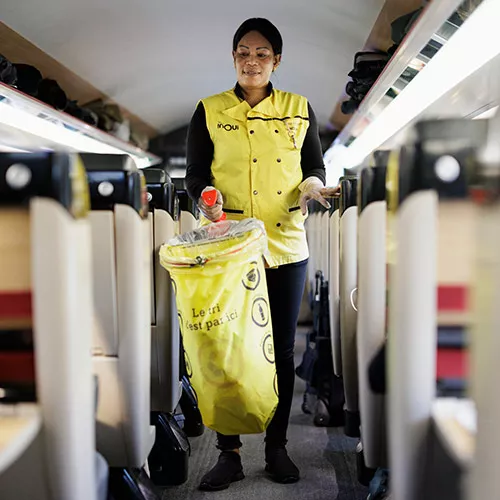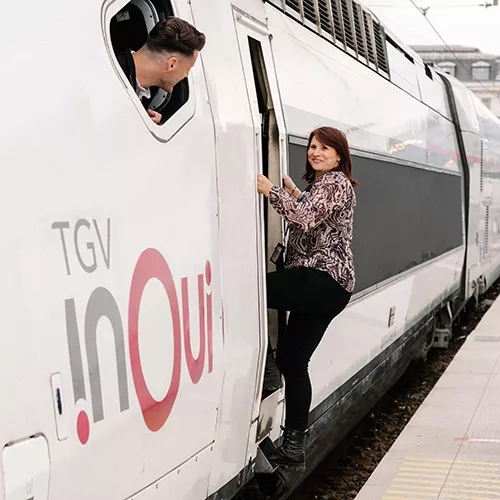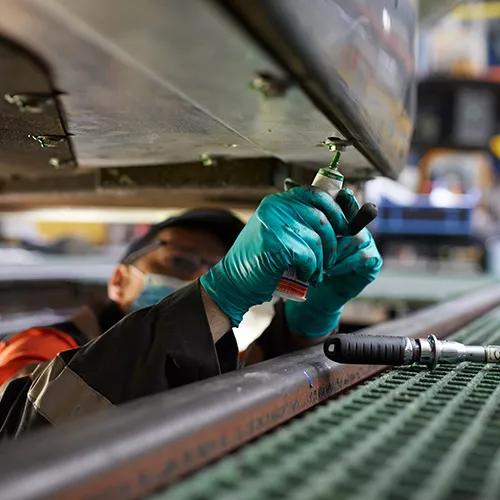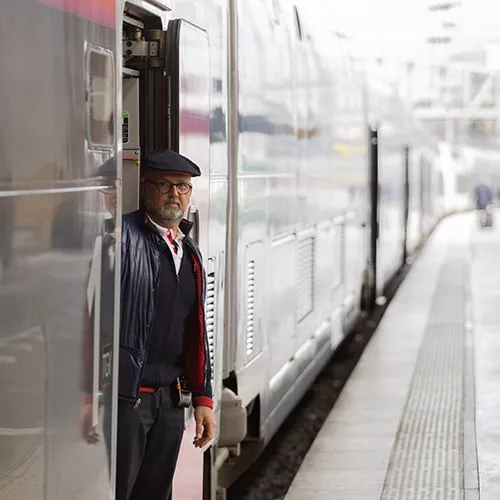Prepping trains for departure
Your train’s journey doesn’t start in the station. From the depot to the departure platform, local SNCF teams are hard at work every step of the way, checking each variable. Sometimes procedures take longer than scheduled, in which case trains are “platformed” late.

Before departure
Paris-Est station. The train for Strasbourg is at the platform. Before boarding passengers and heading for eastern France, SNCF station crews prep the train for departure. Specific tasks include:
- cleaning trainset interiors
- posting exterior signage that shows carriage numbers and stations served
- conducting standard onboard technical checks by the conductor and train manager, to ensure all services are
- operating properly
- loading supplies of food and beverages by the external partner handling onboard catering.
The train cannot leave until all of these tasks are completed and signed off.

Train manager inspection
Before departure, the train manager walks through the train to check that all doors mechanisms function and all services essential to passenger comfort—heating, lighting and air conditioning—are working properly. Similar walk-through inspections are conducted throughout the journey to make sure passengers are safe and comfortable.
What triggers delays between the depot and the platform?
At night, trains are parked in a Technicentre or on a siding. When they head out to their departure platform, they can be delayed by:
- a signalling malfunction on tracks leading to the station
- disruption from manoeuvres by other trains
- confirmation of a technical malfunction on the train itself
Any of these events can lead to late platforming of your train.

Maintenance every 2 to 3 days
At SNCF, safety comes first. We conduct preventive maintenance on each train every 7,500 km, or approximately every 2 to 3 days. If a glitch of any type is detected, our teams step in for repairs, which may delay a train’s departure from the Technicentre.

Knock-on effects
Since each train makes several journeys a day, our trainsets are effectively “reused”—which means a delay on an outbound train can have a knock-on effect on its return journey.
When trains arrive late, some station operations—cleaning, for example—may be scaled back for a faster turnaround. But full technical prep and testing is always conducted. This may slow train platforming and departure time, but we never cut corners when your safety is at stake. In any event, we always go all out to get trains operating on time and minimize delays.
Share the article